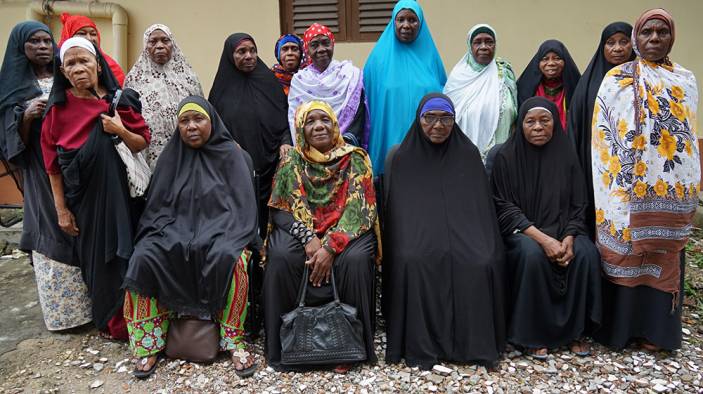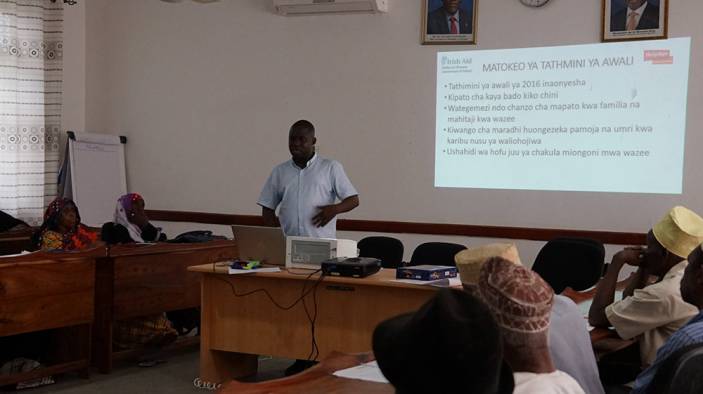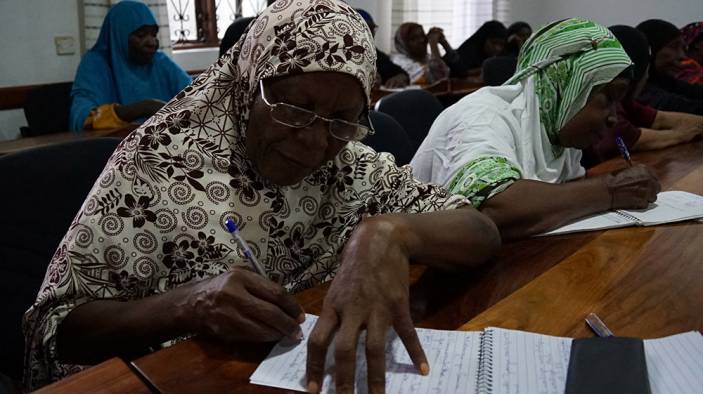
Two years ago Zanzibar took the revolutionary step of becoming the first in East and Central Africa to introduce a universal pension scheme for those over 70. Since its introduction, 28,117 older people are now benefitting from the scheme.
Although an important leap towards the financial protection of older people, a recent study by the Economic and Social Research Foundation (ESRF) revealed that older people’s source of income was still highly dependent on relatives despite being able to access a pension for the last two years.
One of the key findings from the report was that older men and women still lack basic financial management skills. This skills gap negates the very essence of the universal pension, which is to ensure the income security of older people in Zanzibar.
To address this gap, HelpAge with funding from Irish Aid, has set up a project that provides older people with essential skills in financial management. The aim of the training was to help older people understand the benefits of planning and budgeting, so they have more control over their finances.

The training involved bringing the older people together and allowing them to discuss and share experiences on budgeting at home.
I personally found the sessions very enriching and had the opportunity to lead the discussions around gender and budgeting.
Inclusion of older women in financial decision-making
In Zanibar, married women often lose autonomy over their finances. Many women have to consult their husband before spending their earned or acquired money. What came out clearly from this session is that single older women, either through death (widowed), separation or divorce, have greater autonomy and independence to decide what to do with their money.
“I know my rights and no one tells me how to spend my money. Even if it is my child or relative who has sent me money. I will decide on how to spend it,” said Fatma Said (70).

We wanted to ensure that women as well as men, were able to take control of their pensions and decided to focus sections of the training session on the inclusion of older women in financial decision-making at a family level. It was interesting to hear participants share their opinions and experiences of how women and men make decisions on finances at home.
Although distinct gender inequalities came through these discussions, I saw a greater understanding of equality and rights among older women than previous discussions I had been involved in. From this group it appeared that even among men, there is appreciation of the need to include wives in decision-making about household expenditures. Although it was clear there was still a long way to go to ensure that women are involved in financial decision making, it was great to see some progress in action.
According to government records, on average, older people care and manage a household of 5-6 people through their pension. It is therefore extremely important to not just provide them with a pension, but to also provide training on how to manage their finances so they can make the most of the money and maintain their financial control.
